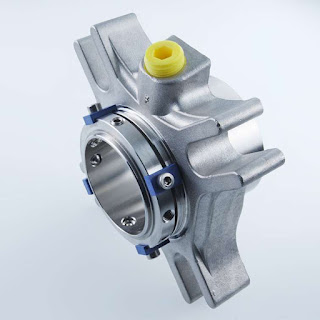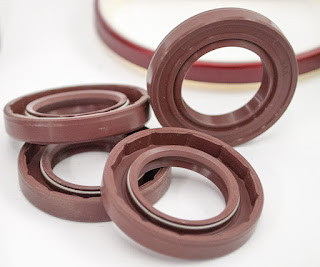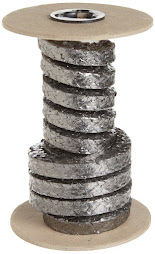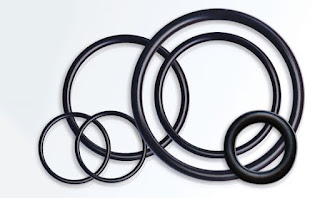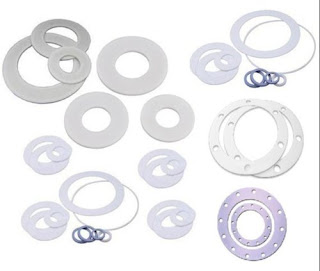Gaskets are humble yet critical components in various industrial and mechanical applications. These seals play a crucial role in preventing leaks and maintaining the integrity of fluid systems. In this article, we will dive into the world of gaskets, exploring their types, materials, and applications.
Introduction to Gaskets
Gaskets are mechanical seals used to prevent the leakage of gases, liquids, or other substances between two surfaces. They are designed to fill the irregularities or gaps between mating surfaces, ensuring a tight and secure seal. Gaskets are widely used in industries such as automotive, aerospace, manufacturing, and plumbing.
Types of Gaskets
1. Non-Metallic Gaskets
Non-metallic gaskets are made from materials like rubber, cork, paper, or felt. They are known for their flexibility and ability to seal under low or moderate pressure. Common non-metallic gaskets include:
- Rubber Gaskets: Made from materials like neoprene, silicone, and nitrile, rubber gaskets are resistant to various chemicals and are often used in automotive applications.
- Cork Gaskets: Cork gaskets are commonly used in the automotive industry for sealing oil pans and valve covers due to their resistance to oil and gasoline.
- Fiber Gaskets: Made from materials like paper or cellulose, fiber gaskets are used in low-pressure applications such as water systems.
2. Metallic Gaskets
Metallic gaskets are constructed from various metals and alloys. They are highly durable and can withstand high temperatures and pressures. Common metallic gaskets include:
- Spiral Wound Gaskets: These consist of alternating layers of metal and filler material, making them suitable for high-pressure and high-temperature applications.
- Ring Joint Gaskets: Typically used in the oil and gas industry, ring joint gaskets provide a reliable seal in applications with extreme pressure and temperature conditions.
- Kammprofile Gaskets: These gaskets feature a serrated metal core with a soft filler material, combining the benefits of both metal and non-metallic gaskets.
3. Composite Gaskets
Composite gaskets combine materials from both non-metallic and metallic gaskets to provide a balance of strength and flexibility. They are often used in applications requiring resistance to extreme conditions.
Gasket Materials
The choice of gasket material is crucial to ensure proper sealing and longevity. Here are some common gasket materials:
- Nitrile Rubber: Suitable for sealing oils, fuels, and water, nitrile rubber gaskets are commonly used in automotive applications.
- Silicone Rubber: Known for its flexibility and resistance to extreme temperatures, silicone rubber gaskets are used in HVAC systems and food processing.
- Graphite: Graphite gaskets are highly heat-resistant and are often used in high-temperature applications, such as in the petrochemical industry.
- PTFE (Teflon): PTFE gaskets are chemically inert and ideal for applications involving corrosive chemicals and high purity requirements.
- Compressed Non-Asbestos (CNA): CNA gaskets are used in various industries and offer a cost-effective solution with good sealing properties.
Applications of Gaskets
Gaskets find applications across a wide range of industries and functions:
1. Automotive Industry
Gaskets are used in engines, exhaust systems, and transmissions to prevent the leakage of fluids and gases, ensuring the efficient operation of vehicles.
2. Petrochemical Industry
In refineries and chemical processing plants, gaskets are essential for sealing pipelines, valves, and flanges, where they must withstand high temperatures and corrosive substances.
3. Aerospace Industry
Gaskets are used in aircraft engines and hydraulic systems to maintain the integrity of fluid systems and prevent leaks that could compromise safety.
4. Manufacturing Industry
In manufacturing, gaskets are used in machinery and equipment to prevent leaks of fluids, such as hydraulic systems and air compressors.
5. Plumbing and Construction
Gaskets play a critical role in plumbing systems, ensuring watertight seals in pipes, valves, and fittings. In construction, they are used in sealing windows and doors.
Gaskets are indispensable components in various industries, providing essential sealing solutions to prevent leaks and maintain the integrity of fluid systems. Whether it's in the automotive, petrochemical, aerospace, manufacturing, or construction industry, the choice of the right gasket and material is paramount to ensure safety, efficiency, and longevity in applications. Understanding the types and materials of gaskets empowers engineers and professionals to make informed decisions when selecting the most suitable gasket for their specific needs.

